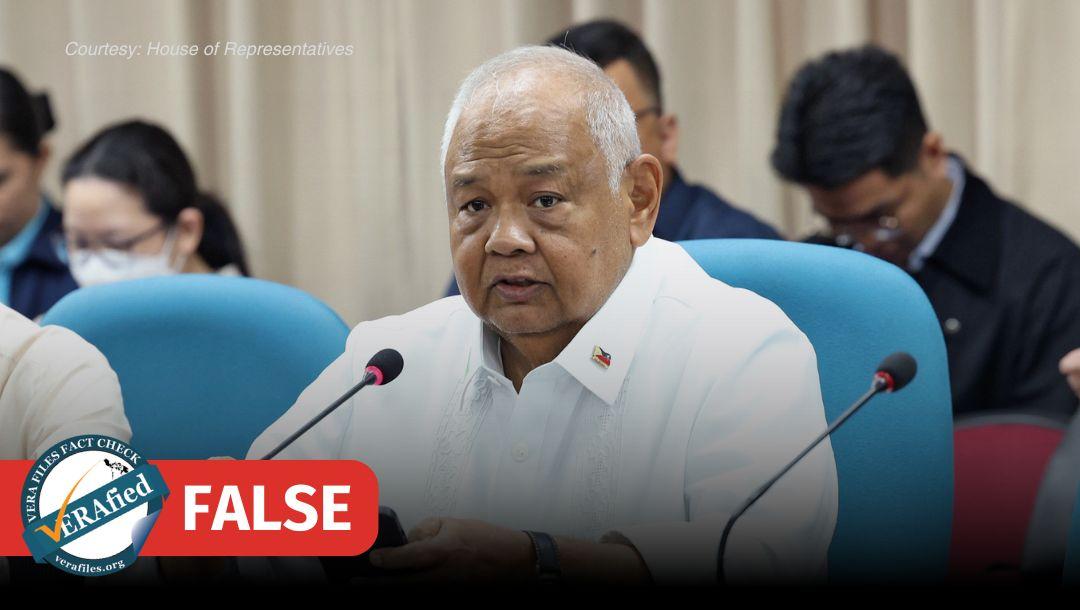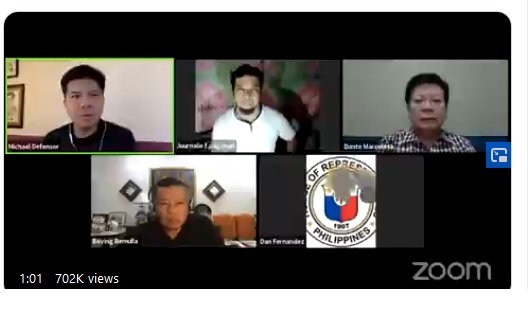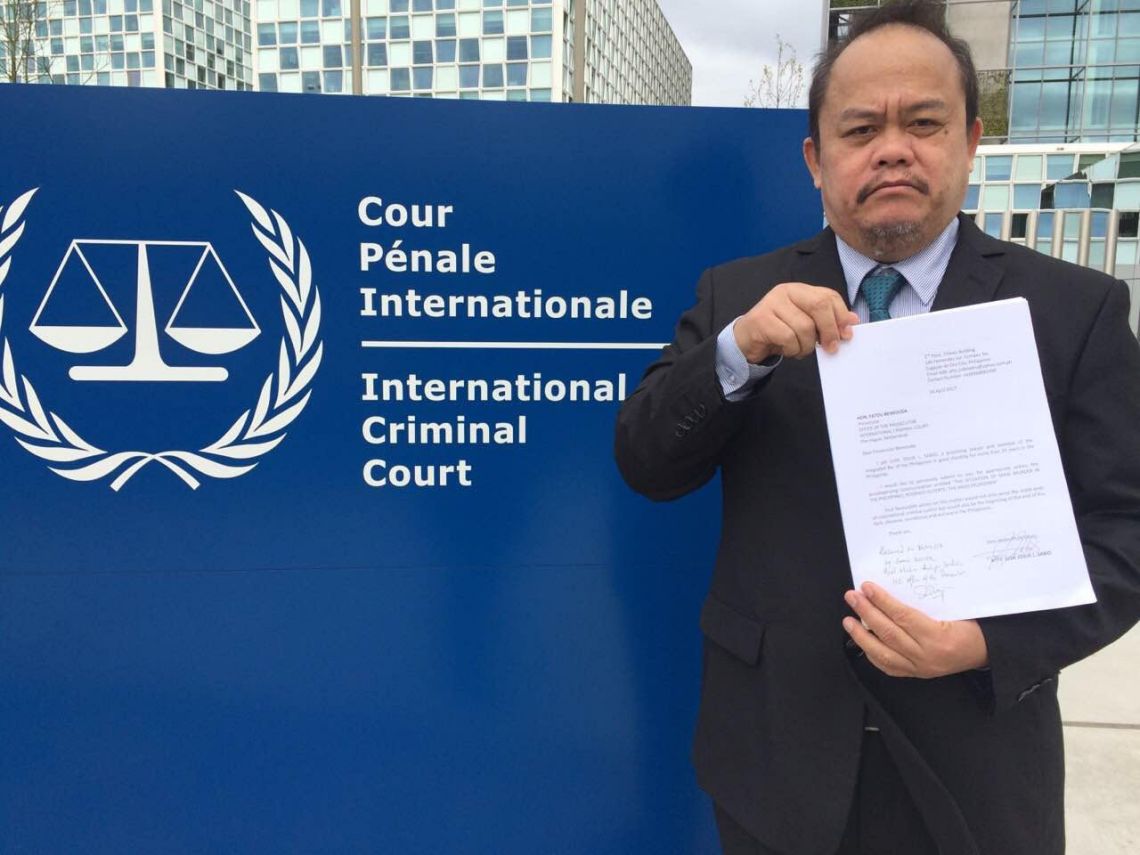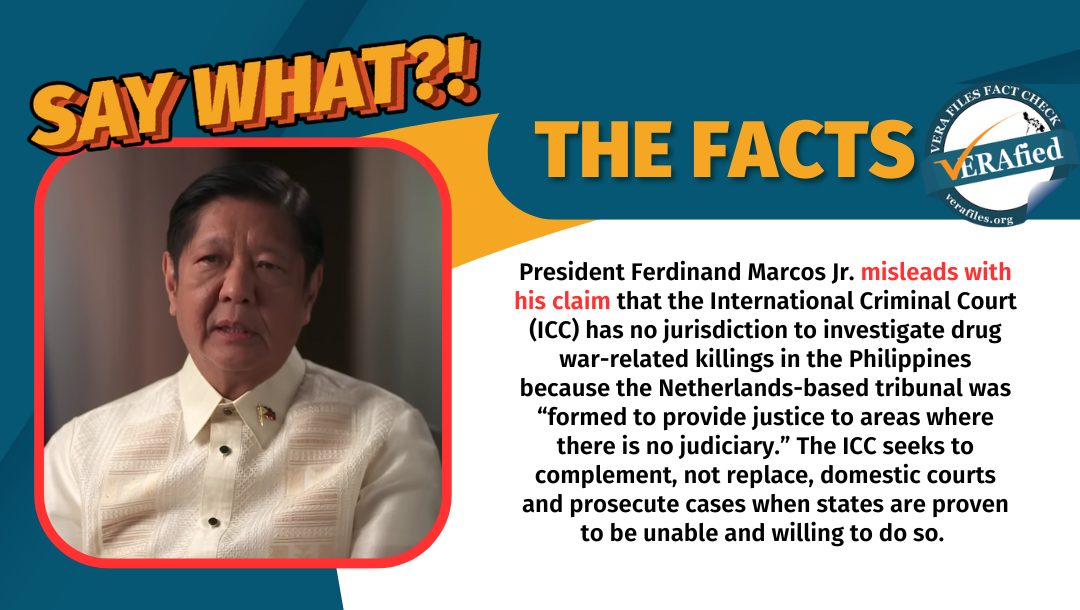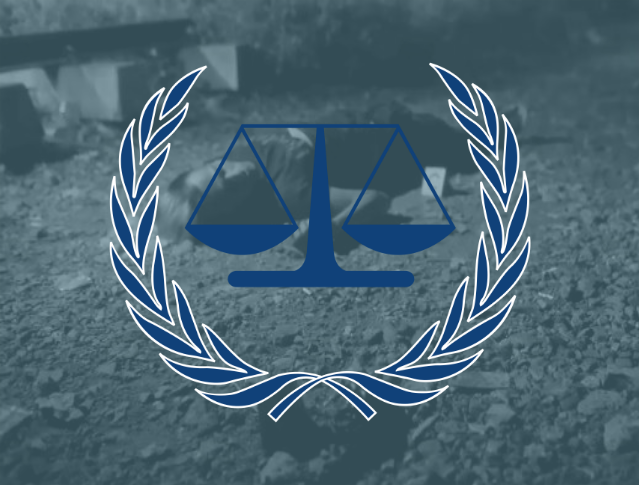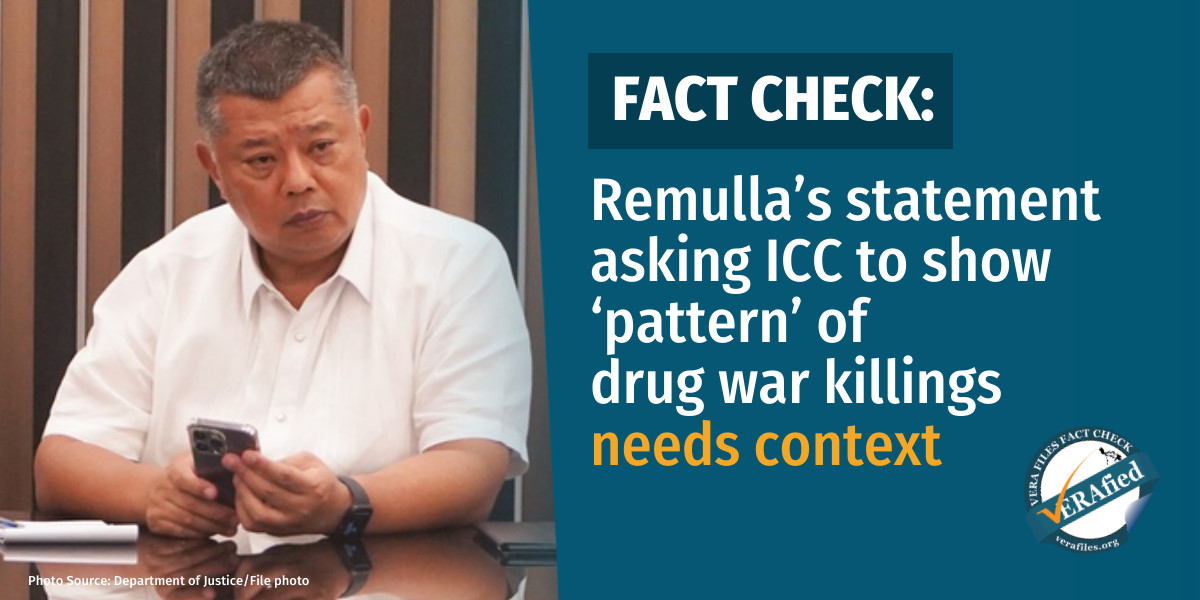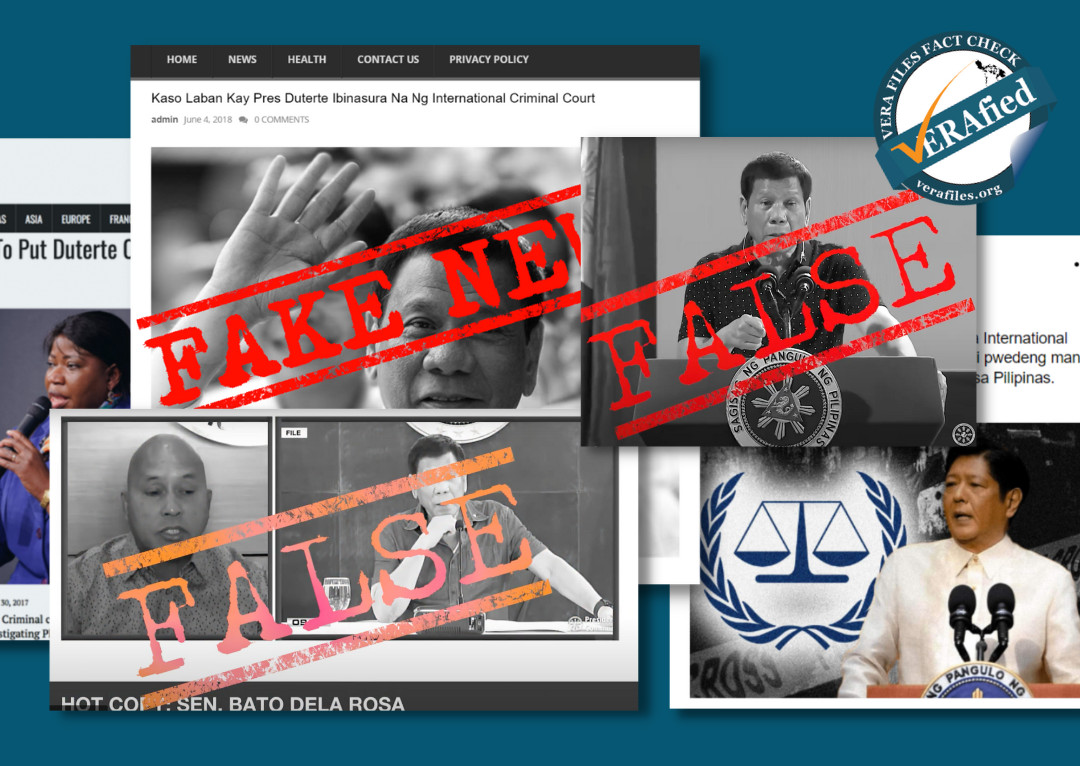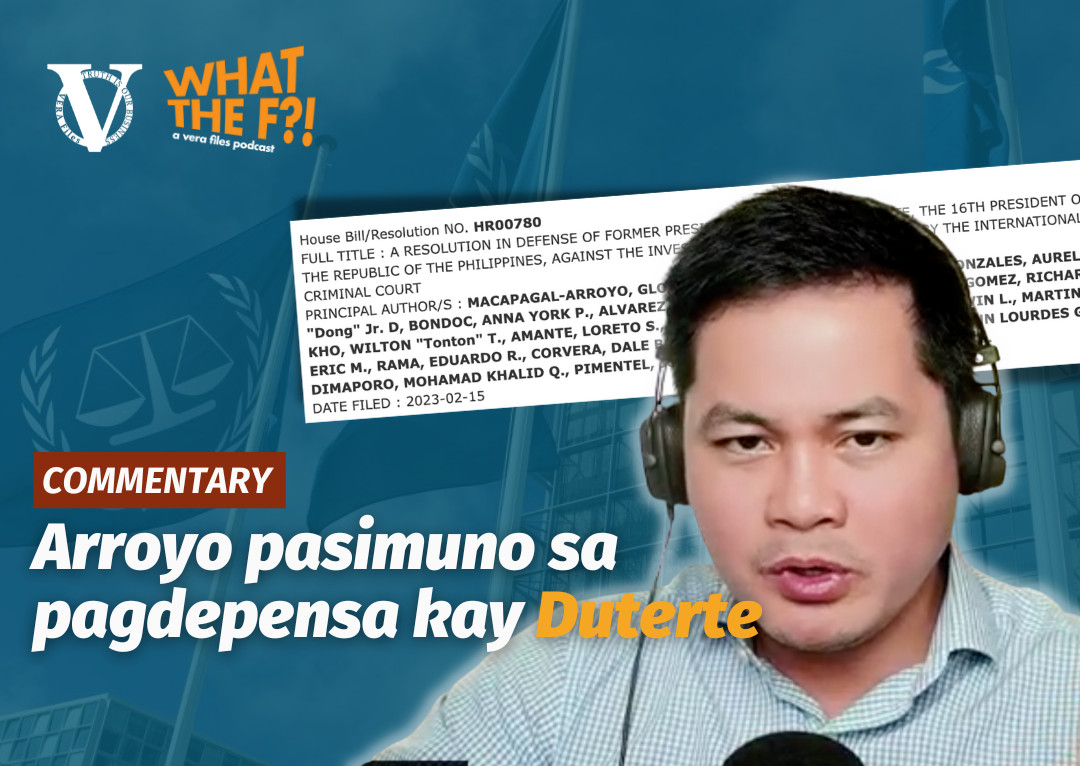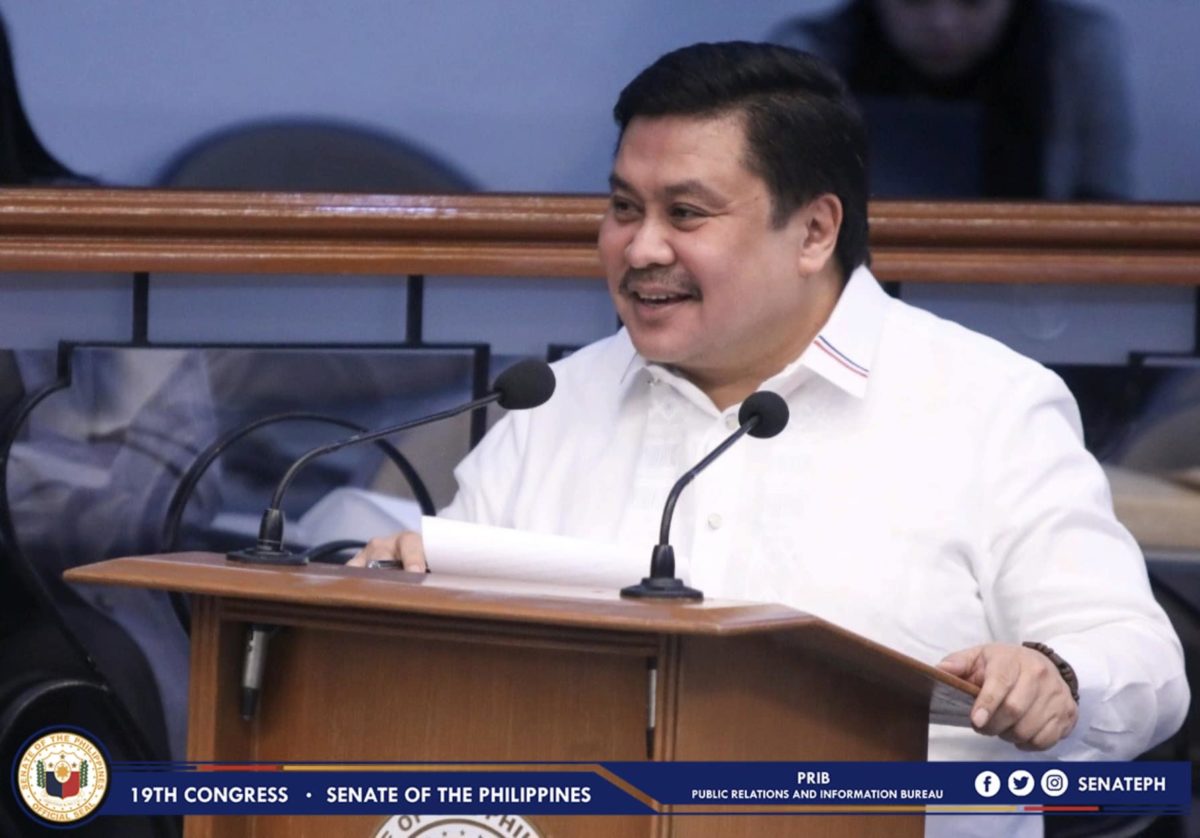Former executive secretary Salvador Medialdea claimed “there was no mention” of jurisdiction in the 2021 ruling of the International Criminal Court (ICC) authorizing the investigation of extrajudicial killings under the Duterte administration’s war on drugs. He also said the court failed to complete the probe within the supposed one-year timeframe when the Hague-based tribunal still had jurisdiction over the Philippines.
These are false.
The ICC’s Pre-Trial Chamber (PTC) addressed the issue of jurisdiction in its 2021 ruling stating that the withdrawal of the Philippines from the tribunal does not absolve the Duterte administration of legal responsibility for events that occurred until March 17, 2019 when the pullout took effect. The PTC decision does not impose deadlines for the completion of the investigation. The tribunal’s preliminary examination began in 2018, the same year the Duterte government gave notice of its withdrawal from the Rome Statute, which formed the ICC.
STATEMENT
When the ICC probe was brought up in the Nov. 13 hearing of the House quad committee, Medialdea jumped in, saying:
“There was a decision rendered by the ICC in 2021. It was a decision wherein three of the justices said that the…investigation should proceed, while two others dissented. Two of those who dissented mentioned that there is no longer…jurisdiction on the part of ICC. They were outvoted…However, the three did not take note of the jurisdiction…there was no mention about any jurisdiction.”
Source: House of Representatives YouTube page, ELEVENTH PUBLIC HEARING OF THE HOUSE QUAD-COMMITTEE (PART 2), watch from 2:33:46 to 2:34:49
Medialdea appeared at the hearing as one of the counsels of former president Rodrigo Duterte, who was summoned to answer questions on his campaign against illegal drugs.
FACT
The 2021 PTC decision was issued at the request of the Office of the Prosecutor. There were no dissenting judges in that ruling.
The Philippine government requested to suspend the investigation before the Appeals Chamber (AC). In a July 2023 decision, the AC affirmed the PTC ruling but two of the five AC judges dissented.
Lawyer and professor Romel Bagares said the AC did not decide on matters of jurisdiction because “the Philippine appeal did not bring it up properly, hence, the AC was not obligated to take it up in its decision.”
“The Philippines should have raised the question of the effect of its withdrawal on the court’s jurisdiction before the Pre-Trial Chamber,” the AC decision reads.
The earlier PTC ruling, however, did mention that the ICC has jurisdiction over the crimes against humanity committed from Nov. 1, 2011 (when Duterte was still vice mayor and later, mayor of Davao City) until March 17, 2019 when he was president.
“In line with the law of treaties,” the withdrawal does not absolve the country of its legal obligations on cases bearing the events that occurred before the termination, the PTC said.
Moreover, Medialdea claimed:
“Under that (Rome) statute, Mr. Chairman, we had a period of one year… the ICC had a period, within a period of one year, to conduct the investigation. The fact is, there was no investigation ever conducted.”
Source: watch from 2:33:26 to 2:33:42
The PTC said, “The court’s exercise of such jurisdiction is not subject to any time limit, particularly since the preliminary examination here commenced prior to the Philippines’ withdrawal.”
The preliminary examination is distinct from an investigation in that the prosecutor first conducts an examination of the situation before requesting that the PTC authorize an investigation.
The PTC noted that the drug war was already under consideration of the ICC when the preliminary examination began on Feb. 8, 2018 so the court did not lose its jurisdiction because of the Philippines’ withdrawal.
Medialdea anchored his arguments on the dissenting opinion in the AC decision where two judges stressed the difference between the existence of jurisdiction and the exercise of it.
They noted that the court indeed had jurisdiction over the drug war killings that happened until March 17, 2019. However, the beginning of the formal investigation—in other words, the exercise or the triggering of that jurisdiction—should have taken place before this date.
Hence, the dissenting judges said the ICC no longer had the authority to begin the investigation when the PTC penned its decision in 2021.
Bagares said, “I tend to agree that the AC’s decision here won on a very slim and uncomfortable majority.” However, he added, “That slim majority holds and is controlling for now.” Whether or not the AC ruling will be affirmed “is a question that the PTC or AC, later for that matter, will have to decide at the appropriate time,” he explained.
Bagares noted that once the prosecutor requests an arrest warrant for Duterte, he can finally take part in the proceedings as a personal party and argue before the court about its supposed lack of jurisdiction.
“If anything, the ICC procedures [disprove] Duterte’s own claims that the court reeks of bias and illegitimacy. The proceedings have, in fact, shown the independence of the court’s judges; that they seek to do impartial justice in the conduct of their work,” Bagares said.
